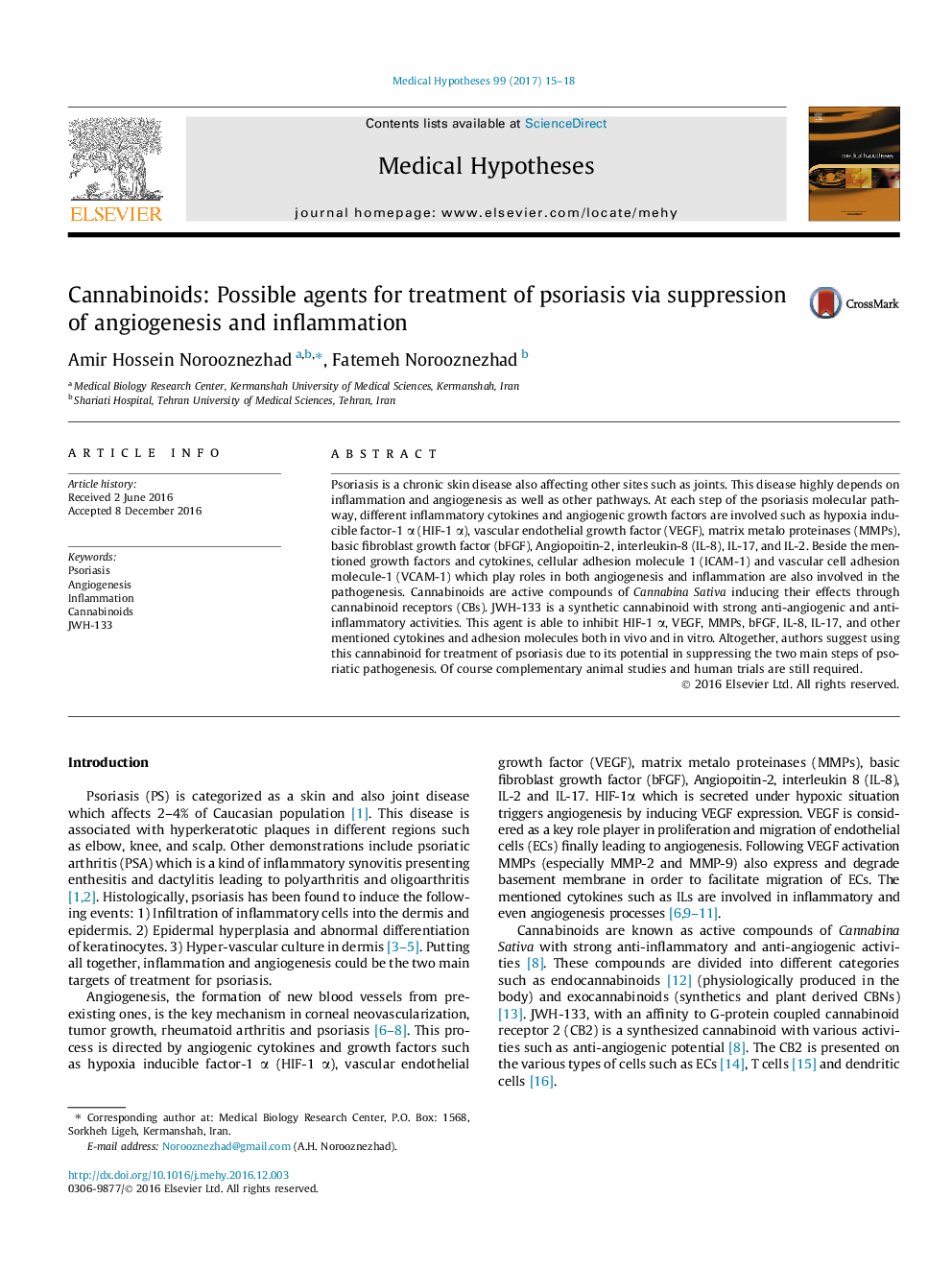| کد مقاله | کد نشریه | سال انتشار | مقاله انگلیسی | نسخه تمام متن |
|---|---|---|---|---|
| 5548614 | 1556546 | 2017 | 4 صفحه PDF | دانلود رایگان |
Psoriasis is a chronic skin disease also affecting other sites such as joints. This disease highly depends on inflammation and angiogenesis as well as other pathways. At each step of the psoriasis molecular pathway, different inflammatory cytokines and angiogenic growth factors are involved such as hypoxia inducible factor-1 α (HIF-1 α), vascular endothelial growth factor (VEGF), matrix metalo proteinases (MMPs), basic fibroblast growth factor (bFGF), Angiopoitin-2, interleukin-8 (IL-8), IL-17, and IL-2. Beside the mentioned growth factors and cytokines, cellular adhesion molecule 1 (ICAM-1) and vascular cell adhesion molecule-1 (VCAM-1) which play roles in both angiogenesis and inflammation are also involved in the pathogenesis. Cannabinoids are active compounds of Cannabina Sativa inducing their effects through cannabinoid receptors (CBs). JWH-133 is a synthetic cannabinoid with strong anti-angiogenic and anti-inflammatory activities. This agent is able to inhibit HIF-1 α, VEGF, MMPs, bFGF, IL-8, IL-17, and other mentioned cytokines and adhesion molecules both in vivo and in vitro. Altogether, authors suggest using this cannabinoid for treatment of psoriasis due to its potential in suppressing the two main steps of psoriatic pathogenesis. Of course complementary animal studies and human trials are still required.
Journal: Medical Hypotheses - Volume 99, February 2017, Pages 15-18
